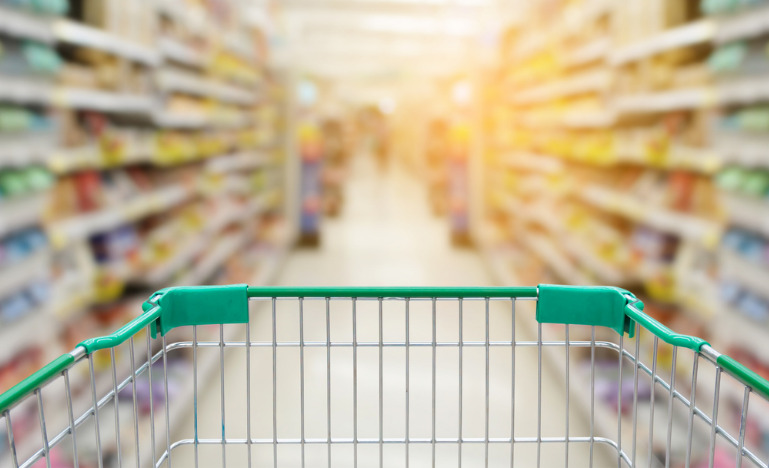Pushing for healthier choices
It isn't so much the regulatory risks that food retailers need to worry about. It's the investors.

How much junk food are grocery stores selling compared with their healthier fare?
That's a question investors in Britain are forcing supermarkets like Tesco Plc to answer. As the link between obesity and serious disease becomes ever more established, they say food retailers should spell out how much of their sales come from unhealthy items. That's because firms that derive a lot of their profits from junk food face some severe headwinds: stiffer anti-obesity legislation and reputational damage.
And if there was ever any doubt investors care, Coca-Cola's sudden US$4-billion plunge in market value after football superstar Cristiano Ronaldo removed two of its drinks during a Euro 2020 press conference ought to put that to rest.
"It's a metric that investors are pushing for because it's a clear insight into the risk that companies carry," said Louisa Hodge, engagement manager at NGO ShareAction, which pushed Britain's largest supermarket chain into more disclosure. "There's a huge amount of research that says customers want healthier food. If companies don't make these changes, they will be at material risk."
Supermarkets play a crucial role in shaping people's diets. Along with wholesome foods, they are the number one purveyors of high calorie, low nutrition options like soda pop, sugary breakfast cereals and fatty ready-meals that are blamed for fuelling obesity. With cafes and restaurants shuttered and the public required to stay local, the pandemic illustrated just how dependant we are on food retailers to provide our most basic requirements. Viewed in this light, increased scrutiny is hardly surprising.
The pandemic has underscored the critical role that the food environment plays in keeping people healthy, said Marcus Wilert, Vice President for Responsible Investment BMO Global Asset Management, in London. It also highlighted the need for more data "to provide insights into how successful retailers are in actually encouraging new habits and satisfying consumer demand," he added in an email.
Under pressure from a group of investors led by ShareAction, Tesco in March pledged to cut its stock of junk food, defined as items with high sugar, fat and salt content. The announcement came after the consortium called on Tesco to be more transparent or face the country's first ever health-related shareholder resolution.
Setting targets to increase healthy food sales from 58% to 65%, Tesco went further than ShareAction had initially hoped for, Hodge said. It's unclear whether more stores will follow suit, but Tesco — by some measures the third-largest retailer in the world — has set a precedent. "The starting point was disclosure," she added.
For now, it's unlikely Canadian food giants like Loblaws, Sobeys and Metro will face similar calls to break out junk food sales figures, observers say.
"It does not seem likely that this issue will develop momentum in Canada. For a retail operator, it would be important to be responsive to the need to support healthy food choices, but I am not seeing a particular advantage to investors on reporting on these numbers publicly," said Andrew MacDougall, partner at Osler, Hoskin & Harcourt, in an email. "We will see if something precipitates a change in Canada."
However, Canadian retailers are sensitive to the public's desire for more nutritious food. Even before the pandemic, supermarkets enthusiastically embraced the trend for healthier fare.
"Health and nutrition are a major driver and this is only going to increase," said Amar Singh, senior director at consulting firm Kantar. However, he doesn't see shareholders pressing for junk food disclosure. Consumers here are also unlikely to respond to product restrictions like those seen in other countries. "That kind of imposition is not going to jibe well in the Canadian market," Singh added.
But the call to curb soaring obesity rates will only get louder, making the retail environment ripe for intervention. "Our food system is at the heart of Covid," says Jacob Shelley, assistant professor at Western University and director of the Health Ethics, Law & Policy Lab. "Food is going to be part of the recovery process. There's going to be a huge push for healthier choices."
Food and drinks giants have long recognized that they need to make changes or run the risk of a consumer backlash. Snacks giant Pepsico has been trying to shed its unhealthy food image for years, banking on the theory that healthier products will be key for long-term growth. Meanwhile, Nestlé, the world's largest food company, reportedly acknowledged in an internal memo that many of their offerings are not nutritious, which may be a problem in an era of stricter regulation and worries over health.
The past two decades have seen an explosion in studies emphasizing the dangers of being overweight. Covid-19's effect on those who catch the virus is particularly alarming; obesity doubles the risk of death. Almost two-thirds of Canadians live with increased health risks due to obesity and this will likely get worse, at least in the short term. According to a global poll, 31% of those questioned said they had put on weight during the pandemic, with the average gain south of the border at about 14 pounds.
So what are the immediate regulatory risks to food retailers? It remains to be seen whether the federal government of Canada will push through stringent legislation to help reverse the weight trend, particularly in children.
But that's not the case in other jurisdictions. Mexico, for example, plans to ban the sale of soft drinks and junk food to minors.
Even former critics of "draconian measures" are changing their tune. U.K. Prime Minister Boris Johnson is forging ahead with plans to prohibit junk-food advertising online, restrict check-out sales and end bulk promotions on sugary and fatty foods. This is not a big surprise. Johnson nearly lost his life to Covid-19, which he emphatically blamed on his weight.


